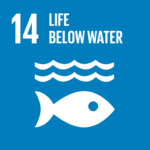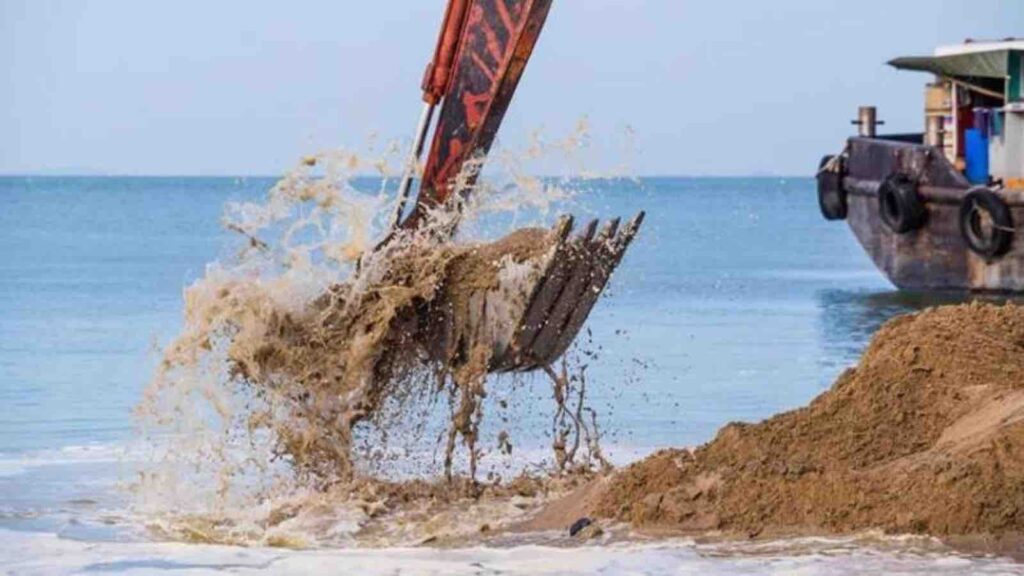Indonesia’s return to sea sand exports sparks environmental concerns and potential ecological disasters.
After a two-decade hiatus, Indonesia has resumed its policy of exporting sea sand, raising serious environmental concerns. As a maritime nation with over 17,000 islands, Indonesia’s decision is viewed by some as a necessary economic move, while others warn of potential ecological disasters. The resumption of sea sand exports is governed by Government Regulation No. 26 of 2023, which President Joko Widodo signed into law in May last year. However, the policy stipulates that exports can only proceed once domestic needs are met.
RELEVANT SUSTAINABLE GOALS


Sea Sand Exports: A Controversial Decision
Trade Minister Zulkifli Hasan issued two new ministerial regulations in 2024 to clarify prohibited exports and export policies, following the revisions mandated by the 2023 regulation. The Ministry of Maritime Affairs and Fisheries will oversee marine sedimentation management, focusing on using marine sediment for ecosystem development and rehabilitation. The government insists that the material being exported is not sea sand but marine sediment that disrupts shipping lanes.
Despite the government’s assurances, the policy has faced criticism from environmental experts and activists. Critics argue that dredging marine sediment for export will harm Indonesia’s marine ecosystems, particularly by accelerating coastal erosion, disrupting marine habitats, and damaging local fisheries. Environmentalists and politicians have expressed concerns over the potential loss of small islands and the threat to biodiversity.
Economist Ihsan Ro, dean of the Faculty of Economics and Business at the University of Mataram, highlighted the potential environmental costs, noting that the financial burden of restoration could exceed the profits from exports. He urged the government to conduct thorough studies before rushing into new regulations.
Politician Daniel Johan from the House of Representatives’ Commission IV echoed these concerns, urging the government to reconsider the policy, citing the ecological damage caused by previous sea sand export practices. He recalled the disappearance of small islands during earlier export periods, which led to former president Megawati Soekarnoputri’s ban on sea sand exports two decades ago.
Impact on Fishermen and Coastal Communities
Greenpeace Indonesia’s marine campaigner, Afdillah, warned that the resumption of sea sand exports would severely affect coastal communities. Sand mining can damage fishing grounds, reduce fish productivity, and lead to food shortages. He cited the case of the Spermonde Islands in 2020, where sand mining by a Dutch ship caused significant damage to local fisheries. The seabed’s structure was altered, ocean currents shifted, and wave sizes increased—all factors that affected both the environment and the livelihoods of local fishermen.
In addition to environmental degradation, coastal communities could face economic and social instability due to the sand mining. Afdillah noted that Government Regulation No. 26 of 2023 appears to prioritize business interests over genuine environmental restoration efforts.
Former maritime affairs and fisheries minister, Susi Pudjiastuti, also voiced her concerns, emphasizing the importance of sand and sediment for Indonesia’s environmental stability. On social media, she suggested that these valuable resources should be used to elevate regions like the northern coast of Java, which has been severely impacted by erosion and subsidence, rather than exporting them.
“Sand and any sediment are crucial for our survival,” she said. “If we wish to utilize these resources, let’s use them to reclaim land and rice fields for the people living on the northern coast, rather than exporting them.”





